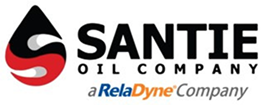In recent years, sustainable practices have become a crucial aspect of business operations across industries. The wholesale oil distribution sector is no exception, as it's essential in supplying oil-based products to the economy. Sustainable practices within this industry can significantly impact the environment and the bottom line of businesses that rely on them. In this blog post, we'll discuss the importance of sustainable practices in wholesale oil distribution and explore some ways that businesses can implement them.
Where To Start With Sustainable Practices?
The first step toward achieving sustainability in wholesale oil distribution is for businesses to assess current practices and identify areas in which they can improve. This includes examining the supply chain for opportunities to reduce waste and energy usage and implementing practical solutions for storage, transportation, and disposal. One effective measure is to switch to environmentally friendly packaging, such as biodegradable containers, to reduce waste and improve recycling rates. Additionally, businesses can reduce carbon emissions by optimizing shipping routes and fuel consumption.
Sustainable Oil Production
Sustainable oil production is another critical area for consideration in wholesale oil distribution. Traditional oil extraction methods have significant environmental impacts, including deforestation, contamination of water sources, and greenhouse gas emissions. Alternative oil production methods, such as renewable energies like solar, wind, and biodiesel, are becoming increasingly popular. Businesses that adopt these eco-friendly technologies can not only reduce their environmental impact but can also achieve significant cost savings. For instance, biodegradable grease can keep operations running smoothly while softening the environmental impact of heavy equipment.
Investing in Renewable Energy
Investing in renewable energy is an essential factor in implementing sustainable practices for any industry. By prioritizing low-carbon energy sources, businesses in wholesale oil distribution can reduce dependence on fossil fuels while generating long-term savings. Renewable energy technologies such as solar, wind, and geothermal are all viable options that offer far lower emissions. In addition, they often produce excess energy that can be sold back to the grid, further reducing energy costs.
Collaboration and Knowledge Sharing
Collaboration and knowledge sharing are also crucial for sustainability in wholesale oil distribution. By sharing information, businesses can identify best practices and implement them more effectively while engaging with fellow stakeholders to promote collective action. Industrywide initiatives such as Sustainable Energy for All (SEforALL) provide opportunities for businesses to collaborate on sustainability efforts and implement best practices, ensuring the industry stays on track for a greener future.
Contributing to a Healthy Planet for Everyone
Sustainable practices in wholesale oil distribution are increasingly important in today's business environment. By implementing environmentally friendly packaging and transportation, alternative oil production methods, renewable energy, and collaboration, businesses can reduce their environmental impact and achieve long-term savings. Moreover, these practices help increase operational efficiency and promote a positive image of businesses. By prioritizing sustainability in their operations, businesses can secure their long-term success and contribute to a healthier planet for all.

